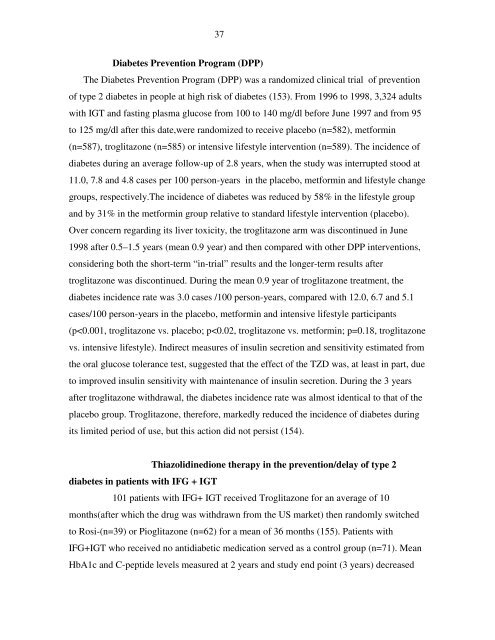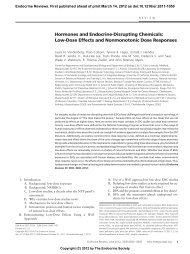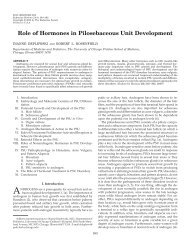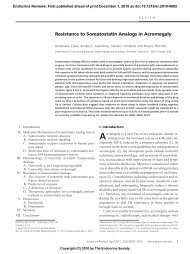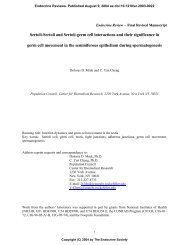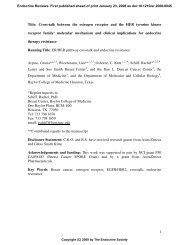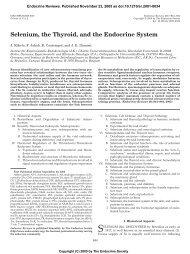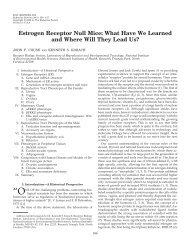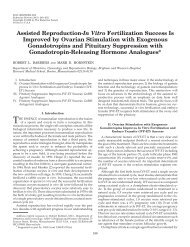1 BETA-CELL FAILURE IN DIABETES AND PRESERVATION BY ...
1 BETA-CELL FAILURE IN DIABETES AND PRESERVATION BY ...
1 BETA-CELL FAILURE IN DIABETES AND PRESERVATION BY ...
You also want an ePaper? Increase the reach of your titles
YUMPU automatically turns print PDFs into web optimized ePapers that Google loves.
37<br />
Diabetes Prevention Program (DPP)<br />
The Diabetes Prevention Program (DPP) was a randomized clinical trial of prevention<br />
of type 2 diabetes in people at high risk of diabetes (153). From 1996 to 1998, 3,324 adults<br />
with IGT and fasting plasma glucose from 100 to 140 mg/dl before June 1997 and from 95<br />
to 125 mg/dl after this date,were randomized to receive placebo (n=582), metformin<br />
(n=587), troglitazone (n=585) or intensive lifestyle intervention (n=589). The incidence of<br />
diabetes during an average follow-up of 2.8 years, when the study was interrupted stood at<br />
11.0, 7.8 and 4.8 cases per 100 person-years in the placebo, metformin and lifestyle change<br />
groups, respectively.The incidence of diabetes was reduced by 58% in the lifestyle group<br />
and by 31% in the metformin group relative to standard lifestyle intervention (placebo).<br />
Over concern regarding its liver toxicity, the troglitazone arm was discontinued in June<br />
1998 after 0.5–1.5 years (mean 0.9 year) and then compared with other DPP interventions,<br />
considering both the short-term “in-trial” results and the longer-term results after<br />
troglitazone was discontinued. During the mean 0.9 year of troglitazone treatment, the<br />
diabetes incidence rate was 3.0 cases /100 person-years, compared with 12.0, 6.7 and 5.1<br />
cases/100 person-years in the placebo, metformin and intensive lifestyle participants<br />
(p


